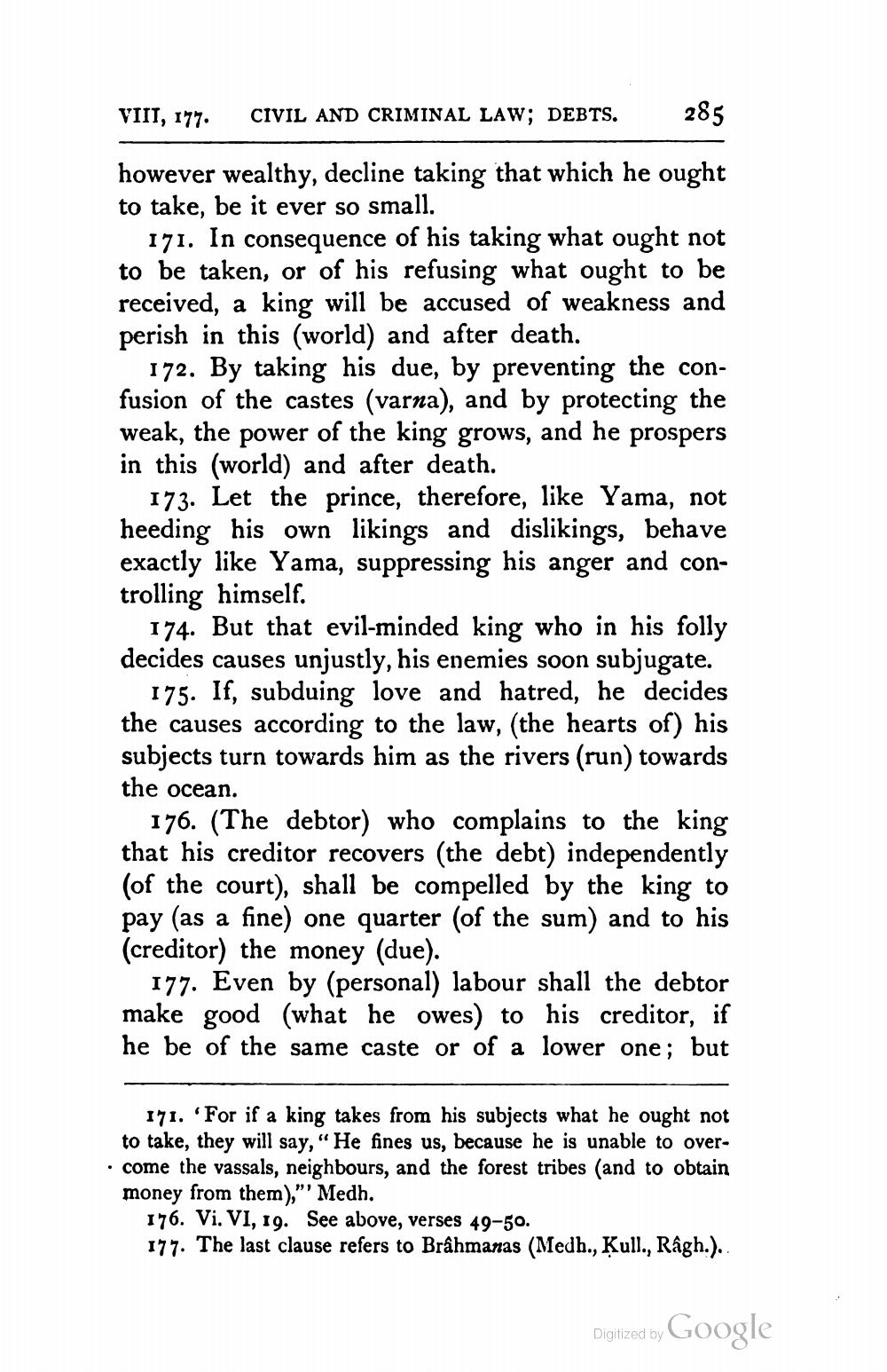________________
VIII, 177.
CIVIL AND CRIMINAL LAW; DEBTS.
285
however wealthy, decline taking that which he ought to take, be it ever so small.
171. In consequence of his taking what ought not to be taken, or of his refusing what ought to be received, a king will be accused of weakness and perish in this (world) and after death.
172. By taking his due, by preventing the confusion of the castes (varna), and by protecting the weak, the power of the king grows, and he prospers in this (world) and after death.
173. Let the prince, therefore, like Yama, not heeding his own likings and dislikings, behave exactly like Yama, suppressing his anger and controlling himself.
174. But that evil-minded king who in his folly decides causes unjustly, his enemies soon subjugate.
175. If, subduing love and hatred, he decides the causes according to the law, (the hearts of) his subjects turn towards him as the rivers (run) towards the ocean.
176. (The debtor) who complains to the king that his creditor recovers (the debt) independently (of the court), shall be compelled by the king to pay (as a fine) one quarter (of the sum) and to his (creditor) the money (due).
177. Even by (personal) labour shall the debtor make good (what he owes) to his creditor, if he be of the same caste or of a lower one; but
171. 'For if a king takes from his subjects what he ought not to take, they will say, "He fines us, because he is unable to over• come the vassals, neighbours, and the forest tribes (and to obtain money from them),"' Medh.
176. Vi. VI, 19. See above, verses 49-50. 177. The last clause refers to Brâhmanas (Medh., Kull., Râgh.)..
Digitized by Google




